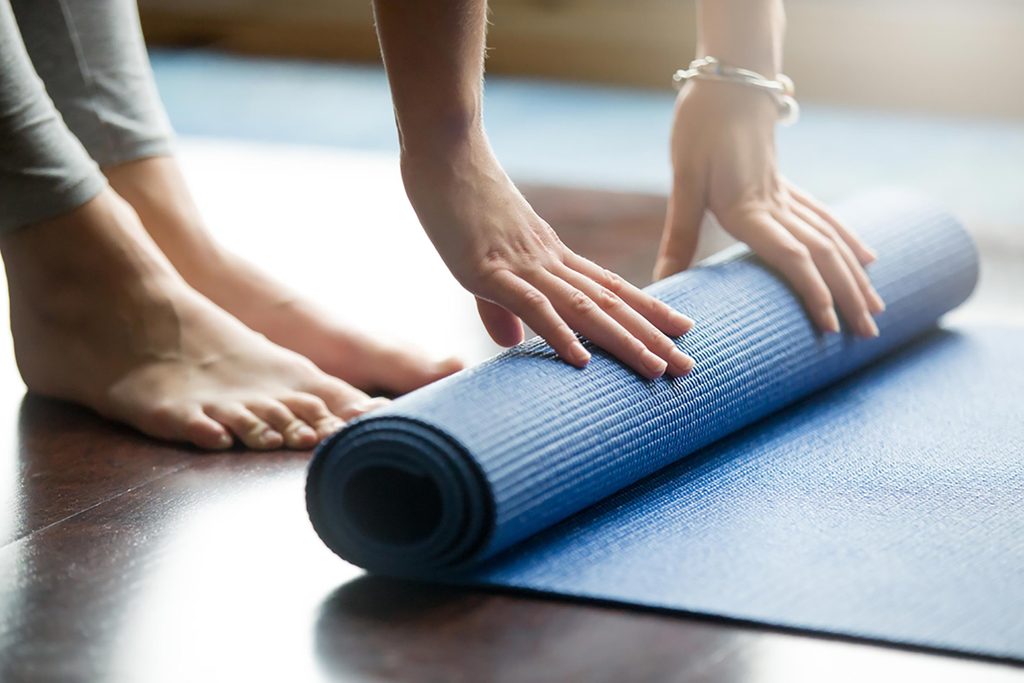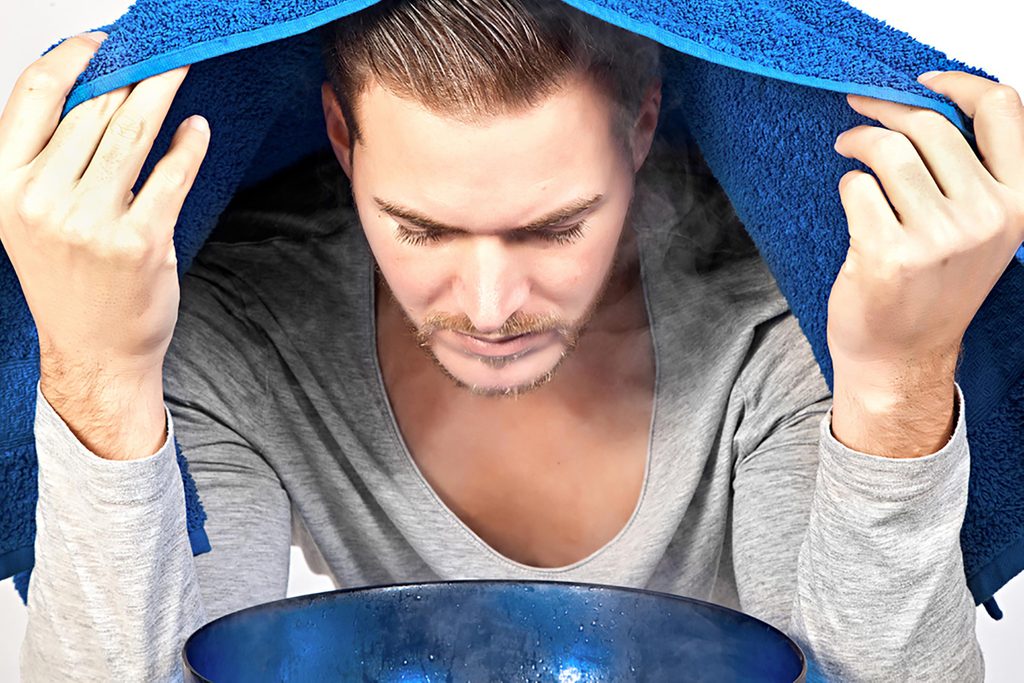
What causes shortness of breath?
The source may be minor or much more severe, says Geeta Maker-Clark, MD, a physician in integrative medicine at NorthShore University HealthSystem. “It can be as minor as a viral infection and as major as a heart attack or pulmonary embolism,” she says. Asthma, pneumonia, COPD, low blood pressure, and lung cancer can be other causes (here are some symptoms of COPD you shouldn’t ignore). More benign reasons for labored breathing may be from exercise or poor air quality.

Danger signs
How can you distinguish run-of-the-mill shortness of breath from something that needs emergency medical attention? Red flags include breathing troubles that comes on suddenly and severely as with an allergic reaction, is worsening, or continues after 30 minutes of rest. In that case, seek medical attention—even sooner if there’s chest pain associated with it, which could be a sign of a heart attack. Call your doctor if you’re having a cough that’s accompanied by bloody mucous or neck pain. If you’re concerned for any reason, don’t hesitate to contact your doctor.

Take a deep belly breath
It’s called diaphragmatic breathing, and you’ve probably heard of it before. Not only does it help you relax (it’s one of the easy ways to stay calm), but it helps your body to destress, too. “This type of breathing helps slow down your sympathetic nervous system,” says Dr. Maker-Clark, which is what activates your fight or flight response. Place a hand on your belly, and breathe in deeply and steadily through your nose. You should feel your belly extending out under your hand. As you exhale, your belly sinks back in. Take care that your exhalation is longer than your inhalation. Repeat for a couple minutes.

Or purse your lips
Another way to get breathing under control while relaxng is pursed lip breathing, explains Dr. Maker-Clark: Relax your neck and shoulders and breathe in through your nose for two counts. Then barely part your lips (like you’re getting ready to whistle) and push the air out slowly and gently for four counts. “Pursed lip breathing can release air that’s been trapped in your lungs. It’s especially great if you’re lifting objects or climbing stairs,” she says.

Sit forward
Everyone’s instinct when they can’t catch their breath is to hunch over and lean on their knees. Unfortunately, that won’t relax your airways, says Dr. Maker-Clark. She recommends sitting in a forward position. “Leaning forward allows your body to take longer, deeper breaths than if you were standing hunched over,” she says. Sit in a chair with your feet flat on the floor, and lean forward. Bonus points if you can rest your forehead on a table, which allows your neck and shoulder muscles to relax, she says. If you’ve been sitting down too long, these stretches are a must.

Stand supported
If you’re having trouble breathing but can’t find a place to sit, the next best thing is to leaning against firm support. The best place to do that is by finding a wall and leaning your back against it. “This will help relax your body and airways,” says Dr. Maker-Clark.

Practice yoga
For people who suffer from the lung condition known as chronic obstructive pulmonary disease—COPD—the relaxing poses of yoga may offer some relief. COPD patients who practiced yoga improved their lung function, according to preliminary research presented at the American College of Chest Physicians annual meeting. In the small study, 29 patients practiced yoga one hour twice a week for four weeks; during the next four weeks, they took a session every two weeks; a final four weeks was spent training at home. After three months, the patients were breathing better and their lung function had improved. Start off with this beginner-friendly sun salutation routine.

Give yourself a steam
If you’re short of breath thanks to mucous buildup from a viral or bacterial illness, one option is a steam inhalation, says Dr. Maker-Clark. “Inhaling steam helps break up nasal congestion to help with breathing,” she says. Fill a bowl of hot water, adding a few drops of eucalyptus or peppermint oil. (These can help clear airways. Eucalyptus specifically has antiviral, antibacterial, and antifungal properties, Dr. Maker-Clark points out.) Place a towel over your head and inhale the steam for a couple of minutes.

Drink ginger tea
Another remedy for breathing contrained by nasal congestion—you feel like you’re trying to get air through a straw—is a ginger tea, says Dr. Maker-Clark. Ginger is one of the ultimate healers. “It will help you cough up mucous,” she says. And while you can buy ginger tea, you can easily make a concoction at home. Peel and chop one to two tablespoons of fresh ginger and add to two cups of boiling water. Cover the pot and simmer for five to 10 minutes to allow it to steep. Strain into a mug, and add honey to taste. Bonus: The tea is instantly refreshing, too.
